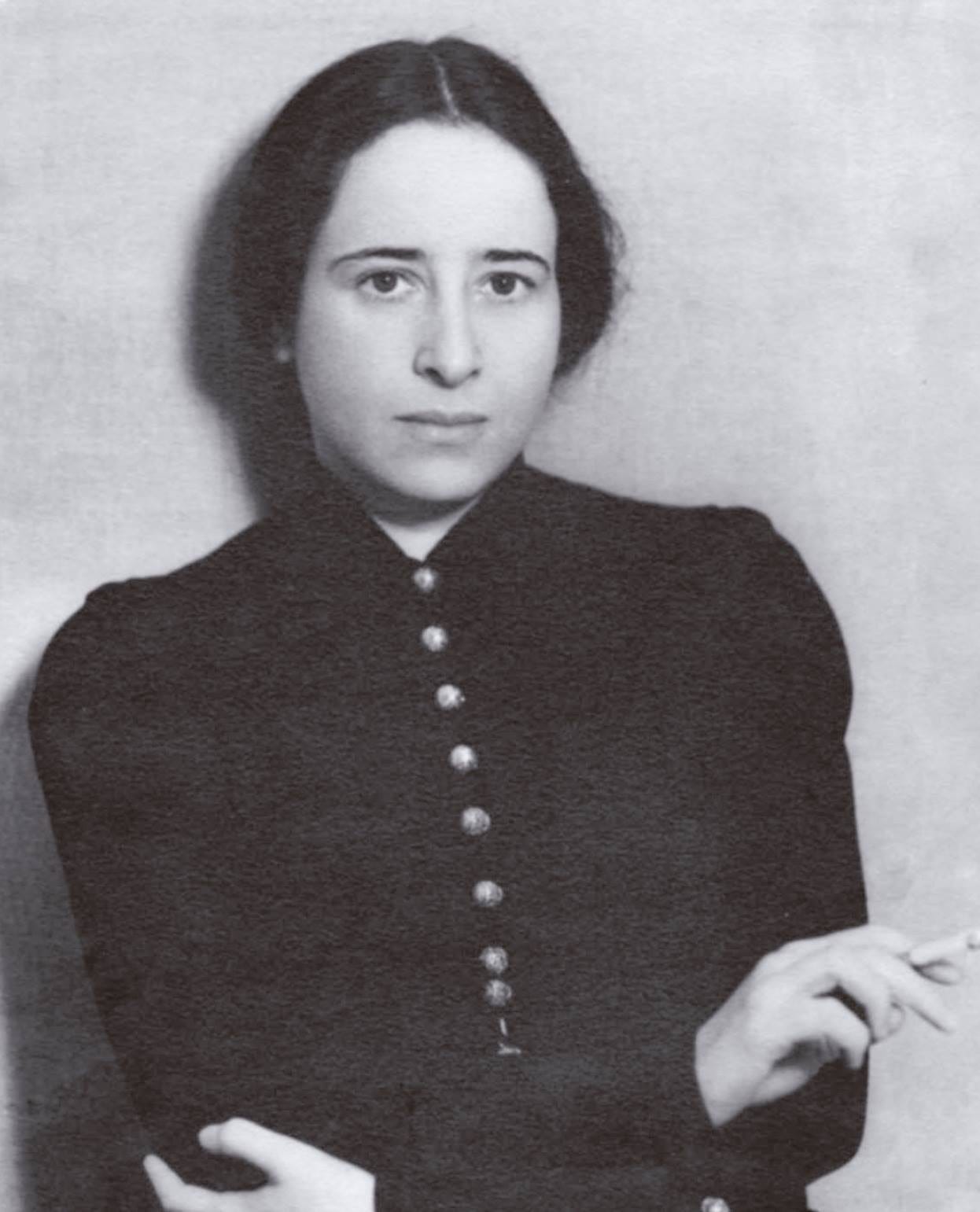Today, the Best American Essays newsletter celebrates German-born political theorist, historian, and philosopher Hannah Arendt, on the 118th anniversary of her birth. Denounced for researching anti-Semitism in Nazi Germany, Arendt and her mother were arrested by the Gestapo in 1933. While awaiting trial, Arendt fled to Paris, where she lived in exile until 1940. When the Nazis occupied France, Arendt was deported to Camp Gurs, but managed to leave it. Friends helped her obtain an exit visa, and in January 1941, she left Europe before its borders were sealed and sought refuge in America, settling in New York City, where she lived, wrote, and taughr until her death in 1975.
Subscribe to our newsletter for news about upcoming online conversations with Best American Essays contributors about essayists.
“Storytelling reveals meaning without committing the error of defining it [and] brings about consent and reconciliation with things as they really are.”
“There are no dangerous thoughts; thinking itself is dangerous.”
First published work of nonfiction:
Der Liebesbegriff bei Augustin. Versuch einer philosophischen Interpretation, Verlag, 1929. A revised translation, Love and Saint Augustine. An Essay in Philosophical Interpretation, was published by the University of Chicago Press in 1995. This was Arendt’s doctoral thesis, completed at the University of Heidelberg under the supervision of Karl Jaspers.
First published essay:
“Aufklärung und Judenfrage” (“The Enlightenment and the Jewish Question”), Zeitschrift für die Geschichte der Juden in Deutschland" (Journal for the History of the Jews in Germany), 1932. Reprinted in The Jewish Writings, Knopf, 2008.

Select Nonfiction Bibliography:
The Critical Edition of Hannah Arendt’s Complete Works is an ongoing project, which will be “presented in seventeen thematically organized parts [that show] the constellation and branching of Arendt’s thought process across the complete works: through shifts between languages—from English to German and back again—as well as through various forms of writing: philosophical, historiographical, and literary. Arendt’s monographs, text collections, and unfinished projects form the gravitational centers of the project. The seventeen thematic complexes of the Critical Edition, conceived as a hybrid edition, will first appear in book form from Wallstein Verlag Göttingen and will be then made available worldwide and for free in Open Access the following year by the Freie Universität Berlin through a web portal (www.hannah-arendt-edition.net).”
See also, works by authors whose essays have appeared in (R) or been listed in Notables (N) in The Best American Essays series:
Baron Wormser, “Hannah Arendt in New York,” Solstice (BAE 2018, R).
Adrianne Kalfopoulou, “With My Daughter, Hannah Arendt, and the City of Future,” Hotel Amerika (BAE 2013, N).
Watch: La Vita Activa: The Spirit of Hannah Arendt, a 2015 documentary.
Watch: An interview with Hannah Arendt, subtitled.
Visit: The Hannah Arendt Center for Politics and Humanities at Bard College.
Visit: The Library of Congress collection of Hannah Arendt’s papers.





